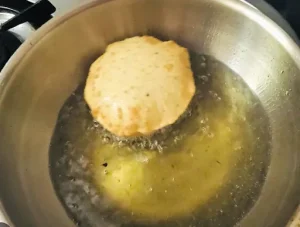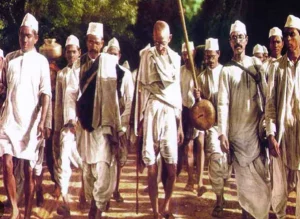Experiments With Water – Complete Guide for CBSE Class 5 EVS Chapter 7
Welcome to iPrep, your Learning Super App.
Our learning resources for class 5 EVS chapter 7 Experiments with Water are designed to ensure that you grasp this concept with clarity and perfection. Whether you’re studying for an upcoming exam or strengthening your concepts, our engaging animated videos, practice questions and notes offer you the best of integrated learning with interesting explanations and examples.
Let’s Join Ayesha on Her Adventures with Water!
Ayesha is full of questions about water, and in this chapter, we’ll join her to explore some fun experiments with water. Let’s learn why some things float while others sink, why salt dissolves in water, and even how Gandhiji led a march to make salt! Get ready to dive into the wonderful world of water experiments! 💧
What Floats – What Sinks? 🚢🌊
One day, Ayesha was watching her mother cook her favorite food – puris! She noticed something interesting. When her mother put the puri in hot oil, it first sank to the bottom. But as it puffed up, it floated on the surface of the oil! Ayesha became curious and decided to try some experiments of her own.

A puri floating on hot oil after puffing up!
Questions to Think About:
- What would happen if Ayesha put a puffed puri in a bowl of water? Would it sink or float?
- What about a steel spoon or plate – would they sink or float?
Let’s move ahead with class 5 EVS chapter 7 Experiments with Water and do an experiment to find which things sink in water and which ones float!
Why Does Some Stuff Float and Other Stuff Sink?
Ayesha learned that some things, like a wooden boat, float on water, but a tiny needle sinks! This puzzled her because the boat was heavier than the needle. This is a great question to explore with a poem:
A wooden boat in water will float. But a needle will sink!
Why does this happen? Let me think…
An iron ship will also float, though it’s much heavier than my boat!
Do This Experiment: Sink or Float!
Gather some friends and try these fun experiments with water. You’ll need a big pot of water and a few different objects to test. Here’s a list to try:
| Item | Guess: Will it Sink or Float? | Result: Sink or Float? |
| Empty bowl (Katori) | ||
| Iron nail or pin | ||
| Matchstick | ||
| Plastic bottle (empty and closed) | ||
| Plastic bottle (half-filled with water) | ||
| Aluminum foil (spread out) | ||
| Aluminum foil (pressed into a ball) | ||
| Soap cake | ||
| Ice cube |
Discussion Questions:
- Why do you think some things floated while others sank? 🤔
- What happened when you changed the shape of the aluminum foil?
The Magic of Salt: Floating a Lemon
One day, Ayesha’s mother asked her to boil some eggs and add salt to the water. By accident, Ayesha put too much salt in, and she noticed that the eggs started to float! This gave her an idea for more experiments with water and a lemon.
Try This: Floating a Lemon!
- Take a glass of water and put a lemon in it. Does it sink or float?
- Now start adding salt, half a spoon at a time, and stir it in.
- Keep adding salt until the lemon begins to float.
Questions to Ponder:
- Why do you think the lemon floated when you added salt?
- Can you explain why things float in salty water more easily than plain water?
Fun Fact: The Dead Sea is so salty that people can float in it without knowing how to swim! Imagine 300 grams of salt in one liter of water – that’s super salty!
Let’s move ahead with class 5 EVS chapter 7 Experiments with Water and do an experiment to find what dissolves in water and what doesn’t!
What Dissolves, What Does Not?
Ayesha’s cousin, Hamid, wanted to make a sweet dish called shakkarpara. His mother asked him to dissolve sugar in water. Hamid thought, “How can I make the sugar dissolve faster so I can get back to watching TV?”
Experiment: Dissolving Different Things
Let’s do more experiments with water and see what happens when we try to dissolve different things in water! Here’s a table to record your observations.
| Item | Dissolved or Not? | What Happened After 2 Minutes? |
| Salt | ||
| Sugar | ||
| Soil | ||
| Chalk Powder | ||
| Milk (1 spoon) | ||
| Oil |
Discussion Questions:
- Could you see the salt after it dissolved in water? Why or why not?
- What differences did you see in water with salt versus water with chalk powder?
Racing Drops: Which Slides Faster?
Let’s join Ayesh and continue our journey of class 5 EVS Experiments with Water. Ayesha put a few drops of water, oil, and sugar solution on the lid of her tiffin box. She tilted the lid to see which drops would race down the fastest!
Activity: Race Your Drops!
- Put a few drops of water, oil, and sugar solution on a flat surface like a plate.
- Tilt the plate and watch which drop moves the fastest. 🏎️💧
Question:
- Which drop went ahead, and why do you think it slid faster?
Let’s continue our journey of Class 5 EVS chapter 7 Experiments with Water and see how salt is prepared.
Where Did the Water Go? 🌞
One day, Ayesha’s mother put water to a boil and got busy with something else. When she returned, there was hardly any water left in the pot! This made Ayesha wonder where the water had gone.
Think About It:
- Where do you think the water went?
- Can you think of other things you’ve seen disappear when they dry out?
Fun Experiment: Drying in the Sun
Think about why Chittibabu and Chinnababu, two brothers in Andhra Pradesh, kept their mango jelly (aam papad) in the sun to dry. What things are dried at your home in the sun? Make a list of items like clothes, papad, chilies, etc., that dry up in the sun.
Let’s continue with class 5 EVS chapter 7 Experiments with Water and do an experiment to find out about an important event in Indian history!
The Dandi March and Making Salt
In 1930, before India became independent, the British had a rule that people could not make their own salt. They also imposed a tax on salt, which made it expensive. Gandhiji thought it was unfair, so he decided to march from Ahmedabad to the Dandi seashore in Gujarat with others to protest this law. This journey became known as the Dandi March. Gandhiji’s protest taught people that they should be able to use natural resources like salt freely.

Gandhiji led the Dandi March to protest against the British salt tax.
How is Salt Made?
- Seawater is collected in shallow pits.
- The water is left to dry in the sun.
- Once the water evaporates, salt is left behind!
Questions for Reflection:
- Why do you think Gandhiji protested against the salt tax?
- Can you make salt at home in a similar way?
What We Have Learned About Water by Doing Experiments with Water
In class 5 EVS chapter 7 Experiments with Water, we explored:
- Why do some things float while others sink?
- How adding salt can make things float more easily.
- What dissolves in water and what doesn’t?
- The fun of racing water and oil drops!
- How the Dandi March taught people the importance of natural resources.
The experiments with water that we conducted helped us realize the importance of water. Since water is such an important resource, it is important to conserve it. For leaning more about water conservation, you can view our page on EVS class 5 chapter 6 Every Drop Counts. If you wish to read the NCERT class 5 chapter 7 Experiments with Water, click here.
Practice questions on Chapter 7 - Experiments with Water
Get your free Chapter 7 - Experiments with Water practice quiz of 20+ questions & detailed solutions
Practice Now








